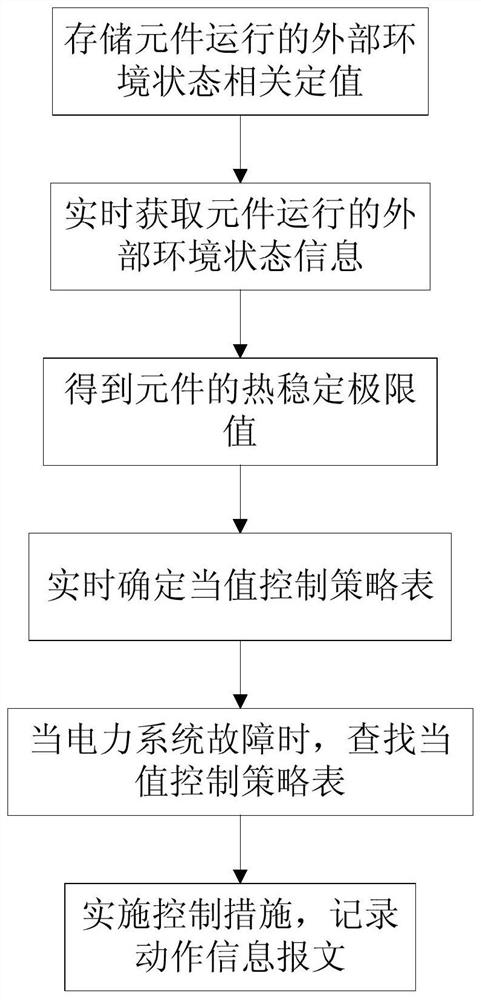A Realization Method of Thermally Stable Emergency Control System Adapting to External Environment
An external environment, emergency control technology, applied in general control systems, control/regulation systems, program control, etc., can solve the problem of mismatching component carrying capacity, minimize costs, improve benefits, and reduce component overload control. Effect
- Summary
- Abstract
- Description
- Claims
- Application Information
AI Technical Summary
Problems solved by technology
Method used
Image
Examples
Embodiment Construction
[0026] The technical solutions of the present invention will be further elaborated below according to the drawings and in conjunction with the embodiments.
[0027] The present invention constructs a power grid safety and stability control system for power grids with thermal stability problems. The power grid safety and stability control system is composed of two or more power plant safety and stability control devices connected through communication equipment, including a control master station and a control substation. and execution station. The power grid with thermal stability problem refers to the power grid where the line or the main transformer will be overloaded after a fault.
[0028] A method for realizing a thermally stable emergency control system adaptive to the external environment, such as figure 1 shown, including the following steps:
[0029] 1) Classify the components based on the external environment information source of the component operation and determ...
PUM
 Login to View More
Login to View More Abstract
Description
Claims
Application Information
 Login to View More
Login to View More - R&D
- Intellectual Property
- Life Sciences
- Materials
- Tech Scout
- Unparalleled Data Quality
- Higher Quality Content
- 60% Fewer Hallucinations
Browse by: Latest US Patents, China's latest patents, Technical Efficacy Thesaurus, Application Domain, Technology Topic, Popular Technical Reports.
© 2025 PatSnap. All rights reserved.Legal|Privacy policy|Modern Slavery Act Transparency Statement|Sitemap|About US| Contact US: help@patsnap.com

